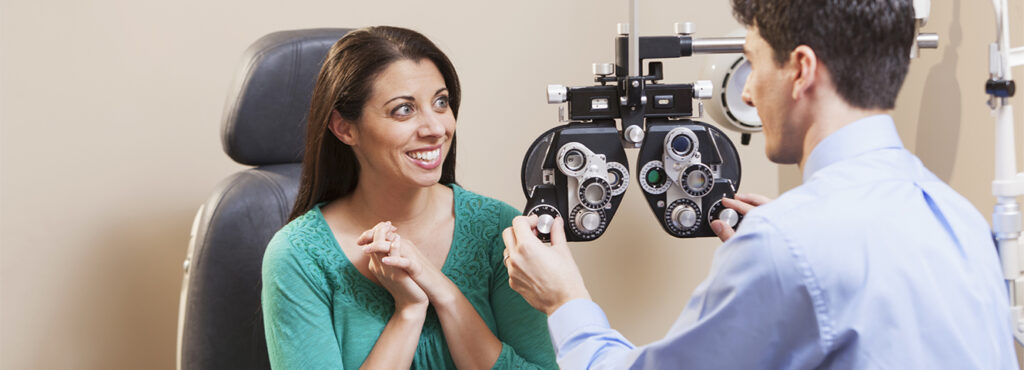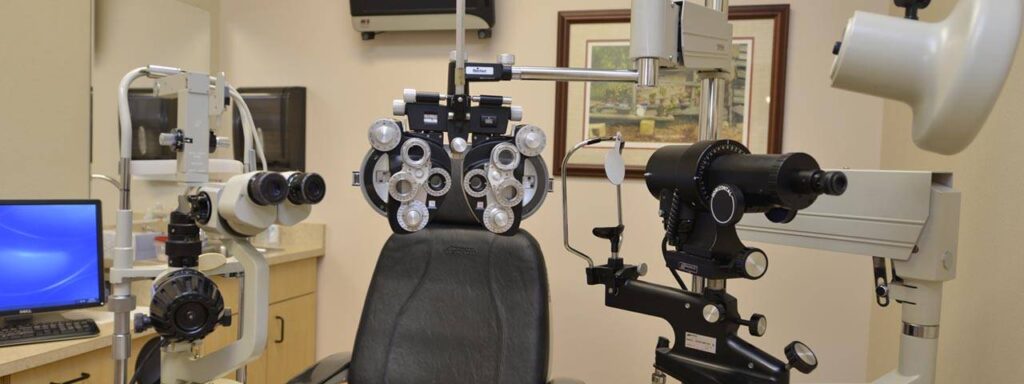
Comprehensive Eye Exams
Comprehensive Eye Exams – The Key to Maintaining Healthy Vision
At Vijaey Opticians, we believe that eye care goes beyond just providing glasses and contact lenses. Regular comprehensive eye exams are essential for maintaining good vision and overall eye health. Our trained optometrists ensure that your eyes are thoroughly checked, allowing us to detect any potential issues early and offer appropriate solutions, whether it’s corrective lenses, treatment for eye conditions, or preventative care.

Why Comprehensive Eye Exams Matter
Your eyes are an essential part of your overall health, and many eye conditions don’t show symptoms until they have progressed. Regular eye exams can help detect issues such as:
- Refractive Errors (Nearsightedness, Farsightedness, Astigmatism): Your prescription may need adjustment over time, and we ensure your lenses match your current vision needs.
- Glaucoma: This condition can develop without noticeable symptoms, but early detection through eye pressure tests can prevent damage to the optic nerve.
- Cataracts: Cloudy lenses can be detected and treated early, preventing significant vision loss.
- Macular Degeneration: A comprehensive exam can catch early signs of this age-related condition, allowing for prompt treatment.
- Diabetic Retinopathy: If you have diabetes, your eye health is even more critical. Regular exams can help monitor and protect against damage to the retina.
At Vijaey Opticians, we use the latest technology and techniques to ensure that your eye exams are thorough and accurate. From simple vision tests to more advanced diagnostic procedures, we cover every aspect of your eye health.
What to Expect During an Eye Exam
When you visit us for a comprehensive eye exam, here’s what you can expect:
- Vision Testing: We’ll assess your vision using an eye chart to determine if you need prescription glasses or contact lenses.
- Eye Pressure Test: This is a quick, painless test to check for glaucoma.
- Retinal Exam: Using advanced imaging technology, we’ll examine the back of your eye to check for signs of retinal issues or diseases.
- Refraction Test: This helps determine the exact prescription for your glasses or contact lenses.
- Consultation: Our optometrist will discuss the results with you and recommend corrective lenses, treatments, or lifestyle adjustments if needed.
Frequently Asked Questions (FAQ)
Q: How often should I get an eye exam?
A: It is recommended to get a comprehensive eye exam once every one to two years. However, if you have any existing eye conditions or a family history of eye diseases, you may need more frequent check-ups.
Q: What’s the difference between a vision screening and a comprehensive eye exam?
A: A vision screening is a quick check to see if you have vision problems, often done at schools or workplaces. A comprehensive eye exam, on the other hand, is an in-depth examination of your eye health, covering everything from vision tests to screening for diseases.
Q: Can you detect other health problems during an eye exam?
A: Yes, an eye exam can sometimes reveal signs of other health issues like high blood pressure, diabetes, or even high cholesterol. This is because the blood vessels and nerves in your eyes reflect your overall health.
Q: Do I need to bring anything for my eye exam?
A: If you wear glasses or contact lenses, bring them with you. It’s also helpful to bring a list of any medications you’re taking and information about your eye health history.
Q: Will my eyes be dilated during the exam?
A: In some cases, we may dilate your pupils to get a better view of your retina and optic nerve. Dilation may cause temporary blurry vision, so you might want to bring sunglasses or arrange transportation after your appointment.
